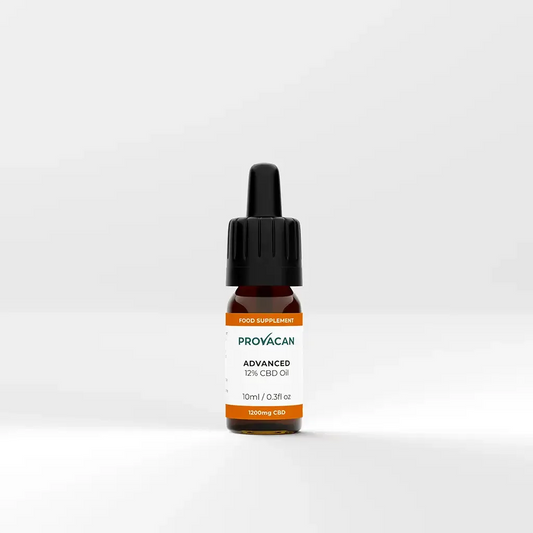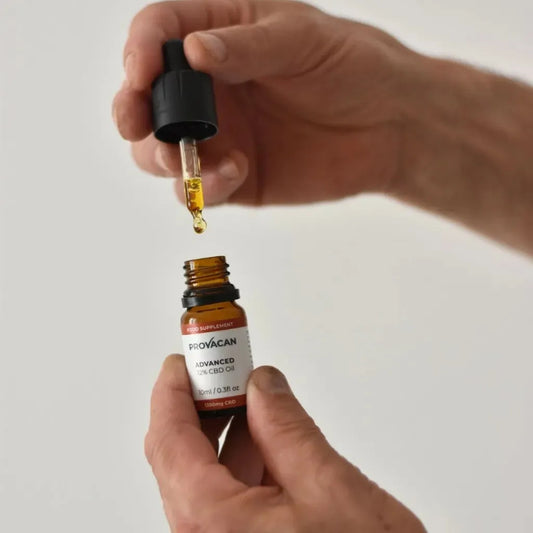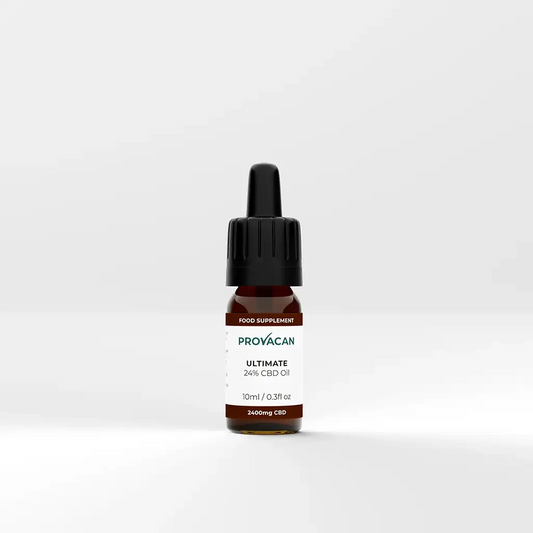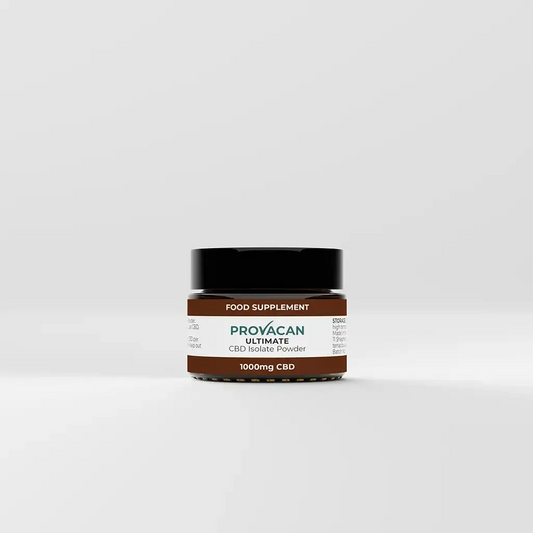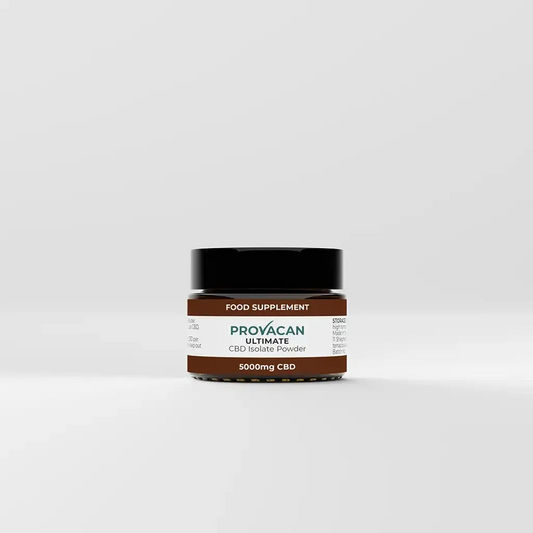Arthritis is a debilitating condition that affects millions of people around the world. The pain, inflammation, and stiffness associated with arthritis can significantly impact a person's quality of life. As a result, many individuals are constantly searching for effective remedies to alleviate their symptoms. One such popular remedy that has gained significant attention is CBD oil.
What is CBD Oil?
CBD oil, also known as cannabidiol oil, is a natural product derived from the cannabis plant. Unlike marijuana, CBD oil does not contain the psychoactive compound THC, which is responsible for the "high" sensation. This makes CBD oil a safe and legal option for consumption in many countries.
Derived from the hemp plant, CBD oil has gained significant popularity in recent years due to its potential health benefits. It is extracted from the leaves, flowers, and stalks of the hemp plant using various methods, such as CO2 extraction or solvent extraction. The resulting oil contains a high concentration of CBD, along with other beneficial compounds like terpenes and flavonoids.
One of the key reasons why CBD oil has gained traction is its potential therapeutic properties. Research suggests that CBD may have anti-inflammatory, analgesic, and neuroprotective effects. It has been studied for its potential use in managing various conditions, including chronic pain, anxiety, epilepsy, and even certain types of cancer.
Furthermore, CBD oil is known for its versatility. It can be consumed orally, applied topically, or inhaled through vaporization. Many people prefer using CBD oil as a natural alternative to traditional medications, as it is generally well-tolerated and has minimal side effects.
It is important to note that while CBD oil is generally considered safe, it is always recommended to consult with a healthcare professional before incorporating it into your wellness routine. They can provide personalized advice based on your specific health needs and any potential interactions with other medications you may be taking.
Is CBD Oil Good For Arthritis?
One of the primary reasons people turn to CBD oil is its potential to treat arthritis symptoms effectively. Scientific research into the use of CBD oil for arthritis is still in its early stages. However, there is growing evidence to suggest that CBD oil may offer significant benefits for individuals suffering from arthritis.
Arthritis is a chronic condition that affects millions of people worldwide. It is characterized by inflammation in the joints, which can cause pain, stiffness, and limited mobility. While there are various treatment options available, many individuals are seeking alternative remedies like CBD oil.
Reduce Inflammation
One of the key features of arthritis is inflammation in the joints. CBD oil has been shown to have anti-inflammatory properties, which means it may help reduce the inflammation associated with arthritis. By targeting inflammation, CBD oil may help provide relief from pain and improve joint mobility.
When inflammation occurs, the body's immune system releases chemicals that can damage the joints and surrounding tissues. CBD oil interacts with the body's endocannabinoid system, which plays a crucial role in regulating inflammation. By modulating the immune response, CBD oil may help alleviate the inflammation that contributes to arthritis symptoms.
Provides Relief
Arthritis often causes intense pain and discomfort. Traditional pain medications may have adverse side effects or may be ineffective for some individuals. CBD oil has been reported to provide relief from arthritis pain without the unwanted side effects associated with pharmaceutical drugs. Many arthritis sufferers who have tried CBD oil have reported a reduction in pain and an enhanced ability to perform daily activities.
Moreover, CBD oil's analgesic properties may help individuals manage their pain more effectively. It interacts with the body's pain receptors, reducing the sensation of pain and promoting a sense of well-being. This can be particularly beneficial for individuals with chronic arthritis pain, allowing them to regain control over their lives and engage in activities they once enjoyed.
While CBD oil shows promise as a potential treatment for arthritis, it is important to note that everyone's experience may vary. It is advisable to consult with a healthcare professional before incorporating CBD oil into your arthritis management plan. They can provide personalized guidance and help determine the appropriate dosage and administration method for your specific needs.
How To Use CBD Oil
When it comes to using CBD oil for arthritis, there are several methods of consumption to consider. The most common method is to place a few drops of CBD oil under the tongue and hold it there for a minute or two before swallowing. This allows for quicker absorption into the bloodstream. CBD oil is also available in the form of capsules, topical creams, and even as edibles such as gummies.
Let's delve deeper into each method of consumption to give you a comprehensive understanding of how to use CBD for inflammation effectively. When using the sublingual method, it's important to note that the oil should be held under the tongue for at least a minute to allow for proper absorption. This method is favored by many due to its fast-acting nature, as the CBD is quickly absorbed into the bloodstream through the thin tissues under the tongue.
If you prefer a more convenient and discreet method, CBD oil capsules might be the perfect choice for you. These capsules contain a pre-measured dose of CBD oil, making it easy to incorporate into your daily routine. Simply swallow the capsule with water, and the CBD will be gradually released as it passes through your digestive system. This method provides a slower release of CBD into the bloodstream, resulting in a longer-lasting effect.
For targeted relief, CBD oil can also be applied topically in the form of creams or lotions. These products are designed to be applied directly to the affected area, allowing the CBD to be absorbed through the skin. This method is particularly beneficial for arthritis sufferers who experience localized pain or inflammation. The CBD interacts with the endocannabinoid receptors in the skin, providing targeted relief to the affected area.
Lastly, if you prefer a more enjoyable way to consume CBD oil, edibles such as gummies are a popular choice. These tasty treats are infused with CBD oil and come in various flavors and strengths. They offer a convenient and discreet way to incorporate CBD into your daily routine, especially for those who dislike the taste of CBD oil. However, it's important to note that the effects of CBD edibles may take longer to kick in compared to other methods of consumption, as they need to be digested first.
Now that you have a better understanding of the different methods of consuming CBD oil, you can choose the one that best suits your needs and preferences. Whether you opt for sublingual drops, capsules, topical creams, or edibles, it's important to start with a low dosage and gradually increase it as needed. Remember to consult with a healthcare professional before incorporating CBD oil into your arthritis management routine to ensure it is safe and appropriate for you.
Side Effects
While CBD oil is generally well-tolerated by most individuals, it can still cause some side effects. The most common side effects include fatigue, diarrhea, and changes in appetite. These side effects, although mild, are important to be aware of as you embark on your CBD oil journey.
Let's delve a little deeper into these side effects. Fatigue, for instance, may occur due to the calming effects of CBD on the body. While this can be beneficial for individuals struggling with sleep disorders, it's important to note that excessive fatigue can impact your daily activities. It's always a good idea to listen to your body and adjust your dosage accordingly.
Diarrhea is another potential side effect of CBD oil. This can occur due to the interaction between CBD and the digestive system. While it may not be a pleasant experience, it's important to remember that it is usually temporary and subsides as your body adjusts to the CBD oil. Staying hydrated and maintaining a healthy diet can also help alleviate this side effect.
Changes in appetite are also commonly reported by individuals using CBD oil. Some may experience an increase in appetite, while others may notice a decrease. These changes are believed to be related to CBD's interaction with the endocannabinoid system, which plays a role in regulating hunger and satiety. It's important to be mindful of these changes and make adjustments to your diet accordingly, ensuring you maintain a balanced and healthy eating pattern.
As with any supplement or medication, it is essential to consult with a healthcare professional before incorporating CBD oil into your arthritis management plan. They can provide personalized guidance, advise you on the appropriate dosage, and monitor any potential interactions with other medications you may be taking. Your healthcare provider is your best resource for ensuring that CBD oil is a safe and effective addition to your arthritis treatment regimen.
Buy CBD Oil
If you're interested in trying CBD oil for arthritis, it is crucial to choose a reputable and reliable supplier. Look for companies that provide third-party lab testing and ensure their products are free from contaminants. Additionally, consider consulting with a healthcare professional to determine the right CBD oil product and dosage for your specific needs.
In conclusion, while research into CBD oil and its effects on arthritis is still ongoing, there is promising evidence to suggest that it may be an effective option for managing arthritis symptoms. It has the potential to reduce inflammation, provide pain relief, and improve overall joint function. However, it is important to approach CBD oil with caution and consult with a healthcare professional to ensure it is safe and suitable for your particular situation. With careful consideration and proper usage, CBD oil may offer significant benefits for individuals living with arthritis.


